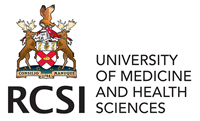This project is for four years starting in September/October 2022. It includes an annual student stipend of €18,000 along with PhD fees. There are additional allowances for training, travel and conference costs. This training position will be provided by the newly established PSI-STAR (Psychosis Ireland Structured Research Training Programme) consortium, a Health Research Board funded Collaborative Doctoral Award investigating the prevention, care and treatment of people experiencing psychosis. The successful candidate will complete a structured doctoral training program leading to the award of a PhD
The Psychosis Ireland Structured Research Training Programme (PSI-STAR) is an all-Ireland, cross-disciplinary training and research programme (https://psistarstudy.eu). You will join the PSI-STAR team, working with researchers, experts through lived experience, clinicians and other PSI-STAR PhD students to change how we think and respond to people who experience psychosis. As part of this PhD training programme, you will have access to focused education and training. As a PSI-STAR PhD candidate, you will join the Structured Population and Health-services Research Education (SPHeRE) programme, Ireland’s national research training programme for population health and health services research (www.sphereprogramme.ie). You will undertake national and international placements and have opportunities for professional networking and attendance at conferences. You will also have the opportunity to work alongside young people and people with lived experience of psychosis who will be part of the PSI-STAR team.
The project focuses primarily on both prediction and prevention of psychosis using biological and other clinical and non-clinical cohort data. The first part of the project will focus on the prediction of outcomes in clinical-high-risk-for-psychosis (CHR) populations. As only a minority of people at clinical high risk go on to develop psychotic disorder it is critical to identify those CHR individuals who are most at risk of developing psychotic disorder and/or poor functional outcomes. The study team you will be joining has already established evidence for a set of biomarker proteins, and clinical experiences and exposures that predict the transition from CHR to psychosis. You will work as part of this ‘parent’ study team.
The second aspect of this project will focus on the area of prevention of psychotic disorder among the general population. There is some support for the role of omega-3 fatty acids administration in reducing rates of transition among the CHR to psychotic disorder. There is also now good evidence from population-based studies that suicidal ideation predicts later psychotic disorder. Your work will build on these studies by exploring, for the first time, the relationship between longitudinal trajectories of polyunsaturated fatty acid (PUFA) levels at ages 7, 8, 15, 17, suicidal ideas and psychotic disorder at age 24. The study will integrate biological, sociodemographic and clinical data from richly-characterised international longitudinal cohorts to inform public health approaches to improve prediction and prevention of psychosis.
This is an exciting project for a skilled statistical researcher with an interest in joining a leading psychosis research team.
All PSI-STAR projects welcome applications from individuals with lived experience and those from diverse backgrounds.
Minimum requirements:
• Upper Second Class (2.1) honours degree (or equivalent) in a relevant subject
• Strong written and oral communication skills and a high level of competence in the English language
• Willingness to work with PPI (public and patient involvement in research) and with people with self-experiences of psychosis
Desirable candidate specifications include:
• Strong statistical skills (particularly longitudinal analyses and predictive modelling)
• Knowledge and awareness regarding existing clinical high-risk and early intervention psychosis services
How do I apply:
To apply, please access the following link and complete the application form in full: https://forms.office.com/r/54wL7N76xe
- Unfortunately, we are unable to provide individual feedback to applicants.
- Shortlisted candidates will be invited for interview.
- At this stage only successful candidates will be contacted to submit, CV, transcripts and other relevant documentation.
- Only their referees will also be contacted at this stage for a reference.
Applications must include:
(i) a completed application form
(ii) English language requirements – see https://www.rcsi.com/dublin/postgraduate/policies-and-guidelines/english-language-requirements.
Deadline: All applications must be made online by 08 July 2022 (GMT)
It is the candidate’s responsibility to ensure the application form is completed in full on time. Late and/or incomplete applications will not normally be assessed.
Further information on the Royal College of Surgeons in Ireland can be found here: https://www.rcsi.com/

 Continue with Facebook
Continue with Facebook



